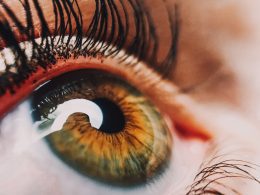Introduction: In the journey to becoming a doctor, the study of human anatomy forms a crucial foundation. While textbooks and digital simulations provide valuable resources, there is no substitute for the hands-on experience gained through cadaver dissection. This article explores the invaluable role cadavers play in medical education, highlighting how they contribute to the development of skilled and compassionate doctors.
An Intimate Learning Experience: The opportunity to dissect a human cadaver is a defining moment for medical students. It offers an intimate and immersive learning experience, enabling them to explore the intricacies of the human body in a way that no other method can replicate. Through cadaver dissection, students gain a deep understanding of anatomy, learning the spatial relationships between structures and developing a three-dimensional perspective that is vital for future clinical practice.
Real-Life Application: Cadaver dissection bridges the gap between theory and practice, allowing medical students to apply their knowledge to real-life situations. By exploring the variations and anomalies found in cadavers, students gain a comprehensive understanding of the human body’s intricacies. This practical knowledge equips them to recognize and adapt to the unique anatomical features they will encounter in their future patients.
The Gift of Context: Cadavers provide an essential context that textbooks and digital resources cannot provide. Students witness firsthand the effects of diseases and conditions, gaining a deeper appreciation for their impact on the human body. This contextual understanding helps students develop a holistic perspective on patient care, enabling them to approach diagnoses and treatments with greater sensitivity and insight.
Developing Technical Skills: Beyond knowledge, cadaver dissection hones the technical skills essential for medical practice. Students learn surgical techniques, proper instrument handling, and develop dexterity and precision through their hands-on experience. These skills lay the foundation for future procedures, ensuring that medical graduates are competent and confident in their abilities.
Fostering Empathy and Respect: Cadaver dissection instills qualities vital to the doctor-patient relationship—empathy and respect. As students dissect and explore the human body, they develop a deep reverence for the lives once lived. This appreciation for the donor’s gift cultivates empathy, reminding future doctors of the humanity behind every medical encounter. It encourages a compassionate approach to patient care, where the individual is seen as more than just a medical case.
Ethics and Professionalism: Adhering to ethical guidelines and professionalism is crucial in the realm of cadaver dissection. Respect for the donor’s gift, maintaining privacy and confidentiality, and ensuring proper handling and disposal of remains are paramount. Medical institutions uphold these principles, fostering an environment of integrity and professionalism that reflects the highest standards of medical education.
Acknowledging Donors’ Contributions: The contributions of body donors to medical education cannot be overstated. Their selfless act provides an immeasurable gift to aspiring doctors, shaping their skills and nurturing their compassion. It is important to recognize and honor these donors, to express gratitude for the invaluable role they play in training the next generation of doctors.
The Ongoing Impact: The knowledge and skills gained through cadaver dissection stay with medical professionals throughout their careers. The lessons learned from these silent teachers influence their approach to patient care, their ability to diagnose and treat, and their commitment to lifelong learning. The impact of cadaver dissection extends far beyond the confines of medical school, shaping the quality of healthcare delivered to patients.
Conclusion: Cadaver dissection is an irreplaceable component of medical education, providing students with an intimate and comprehensive understanding of the human body. Through this hands-on experience, future doctors develop the technical skills, empathy, and respect necessary to excel in their profession. Let us acknowledge the invaluable contributions of cadavers and honor the donors who selflessly gift their bodies for the advancement of medical knowledge.












